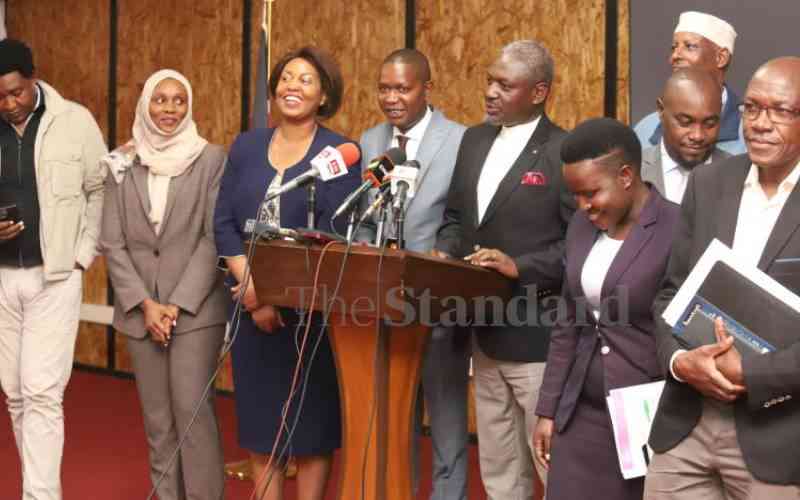×
The Standard e-Paper
Kenya’s Boldest Voice

Freedom to demonstrate and picket may soon be curtailed if discussions in the bipartisan talks are anything to go by.
Rocked by several demonstrations less than a year of running government, the Kenya Kwanza regime through its representatives in the bipartisan talks committee is pushing to discuss ways of instituting a legal framework to regulate Article 37 of the constitution.